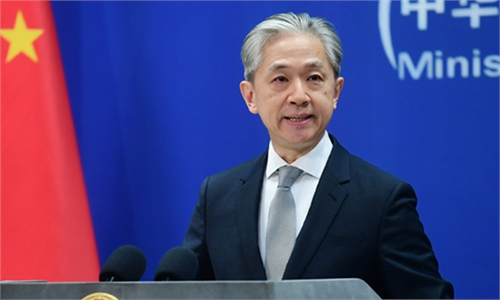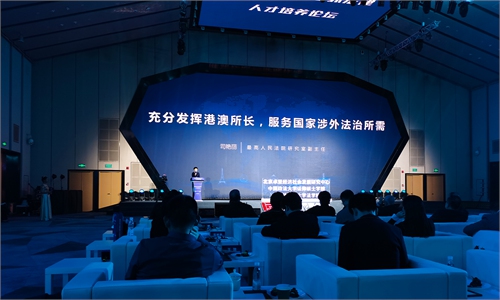China’s top court issues 1st batch of typical cases for applying extraterritorial laws

rule of law (file photo) Photo: VCG
The Supreme People's Court (SPC), China's top court, on Wednesday issued its first batch of typical cases for clarifying and applying extraterritorial laws after the country in 2023 adopted judicial interpretations on the applicability of international treaties and practices in handling overseas-related civil and commercial cases.
"These typical cases are highly representative and have important guiding significance for enriching the practice of identifying extraterritorial laws and clarifying the rules for identifying extraterritorial laws," the SPC said.
The release of typical cases is believed to have great significance for continuously creating a market-oriented international first-class business environment under the rule of law in China and enhancing the international credibility and influence of China's judiciary.
The five released typical cases involve common types of overseas-related civil and commercial cases such as company investment, sales contracts, guarantee contracts, multimodal transport contracts and engineering supervision contracts.
Laws of countries and regions including the US, the UK, Mexico and Tajikistan, as well as the Hong Kong Special Administrative Region are included, the SPC said.
In December 2023, the SPC released a set of judicial interpretations on the applicability of international treaties and practices in handling overseas-related civil and commercial cases in China.
The interpretations provide courts in China with the basis for appropriately handling overseas-related civil and commercial cases, said an official with the SPC. The official added that it is expected to improve the quality of China's overseas-related judicial practice and enhance China's judicial credibility and its influence in the international community.
Wan Miaoyan, director of Sichuan Dingchi law firm, told the Global Times that the released typical cases mirror examples of judicial progress in China.
China's law for overseas-related civil relationships was established in accordance with international legal norms, presenting characteristics of openness and inclusiveness in legislation. The identification of extraterritorial laws in overseas-related cases is a fundamental prerequisite for determining the basic legal facts of a case and making a fair judgment, Wan said.
From the released cases, we can tell that the courts in overseas-related judicial trials have accurately identified and applied the extraterritorial laws, international treaties and international customs most closely related to those cases. It greatly increases the confidence and evaluation of foreign investors in China's investment environment, trade environment and judicial environment, Wan said.
According to the SPC, in a contract dispute between a medical company from Hong Kong and another medical company from the UK, the extraterritorial laws provided by the parties contained a large number of materials such as statute law, case law and legal works, and there were great disputes between the parties on the content, understanding and application of extraterritorial laws.
The court handling the case did not simply hold that extraterritorial laws could not be ascertained. But through comprehensive analysis and careful comparison, the extraterritorial law has been prudently identified.
The SPC said that expanding and diversifying the ways of ascertaining extraterritorial laws is a key link in solving the difficulties of ascertaining extraterritorial laws. Generally speaking, any reasonable means that are beneficial to ascertaining extraterritorial laws can be utilized to ensure the accurate application of extraterritorial laws to resolve disputes between parties.
In one case involving a financial loan guarantee contract dispute between a branch of a bank in East China's Zhejiang Province and a technology company in Hong Kong region, which held shares in a company registered in the US, the court, upon the parties' request, entrusted an extraterritorial law research center to ascertain the legal issues of multiple legal domains involved in the case, effectively resolving multiple legal disputes in one go.




